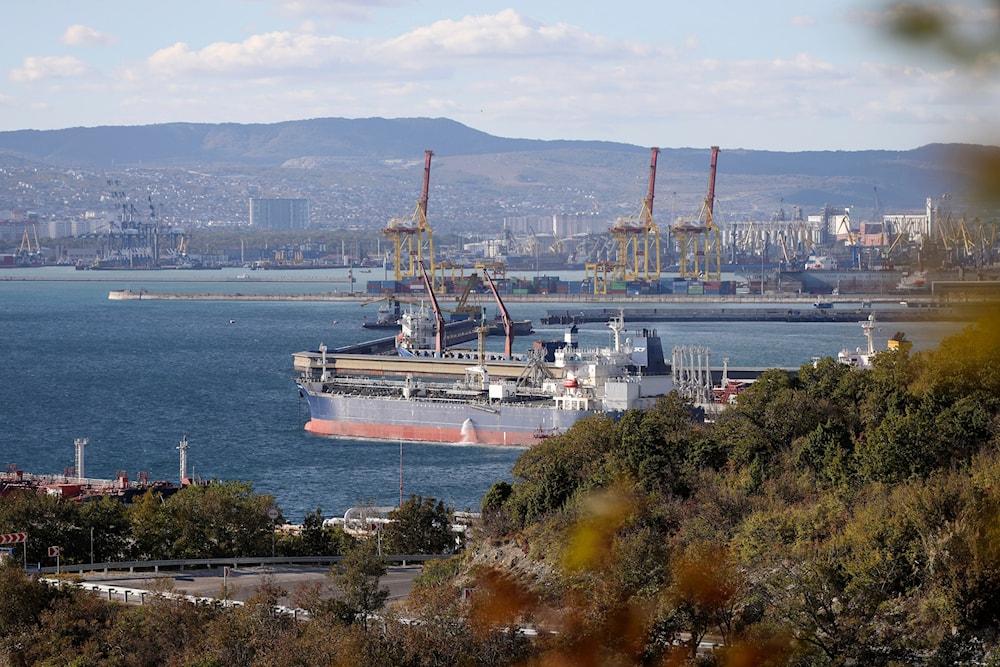Ukrainian watchdog flags German ship, claims US gets oil from Russia
The German tank in question is operated Chemikalien Seetransport (CST), and its public shipping data states is intended to transport petrol and other chemicals as it is currently located in Southern Branch Elizabeth River, south of Norfolk.
-

An oil tanker is moored at the Sheskharis complex, part of Chernomortransneft JSC, a subsidiary of Transneft PJSC, in Novorossiysk, Russia, on October 11, 2022. (AP)
A German-operated tanker, Avenca, has been flagged by a Ukrainian maritime traffic watchdog which claimed that it was possibly delivering Russian oil products to major US base Naval Station Norfolk - violating US sanctions.
The allegation arises from the head of the Black Sea Institute of Strategic Studies, an NGO, and editor of pro-Ukrainian BlackSeaNews which covers maritime traffic, Andrey Klimenko. He alleged that the ship carried 50,000 tons of oil products from the Russian port of Novorossiysk straight to Norfolk, Virginia.
The tanker is operated by the German firm Chemikalien Seetransport (CST), and its public shipping data states it is intended to transport petrol and other chemicals, and that it is currently located in Southern Branch Elizabeth River, south of Norfolk.
Klimenko expressed that the “miraculous” delivery “causes neither anger, nor disappointment, only sarcastic laughter.”
He further reported that the Avenca could have also carried UAN, a mix of urea and ammonium nitrate which acts as a fertilizer, but these chemicals are not sanctioned by the US.
Notable profits, breakable sanctions
According to the Washington Post last month, petroleum products coming from Russia did not stop flowing into the Pentagon's supply chain despite its attempts to avoid benefitting it.
This also follows a report by Sputnik just last week that the European Union has received nearly 66.7 billion euros ($72 billion) worth of liquefied natural gas (LNG) from the United States since February 2022. Without sanctions, US companies would have earned 52.2 billion euros less, as per data from the European Statistical Office (Eurostat).
The "additional cost" resulting from sanctions against Russia for US gas companies in the European market amounted to 36 billion cubic meters of gas over 20 months, according to the data. This led to the EU incurring a cost of 52.2 billion euros, with European countries paying twice the amount for gas compared to the period before the war.
Read next: Oil hits 6-months low, falls below $70 as supply-demand fears settle
Decreasing reliance on Russian energy emerged as a key focus for the European Union following the initiation of the war in Ukraine. In response, the bloc opted to substantially decrease its imports of Russian fuels, resulting in a notable surge in gas prices within the bloc.

 3 Min Read
3 Min Read









